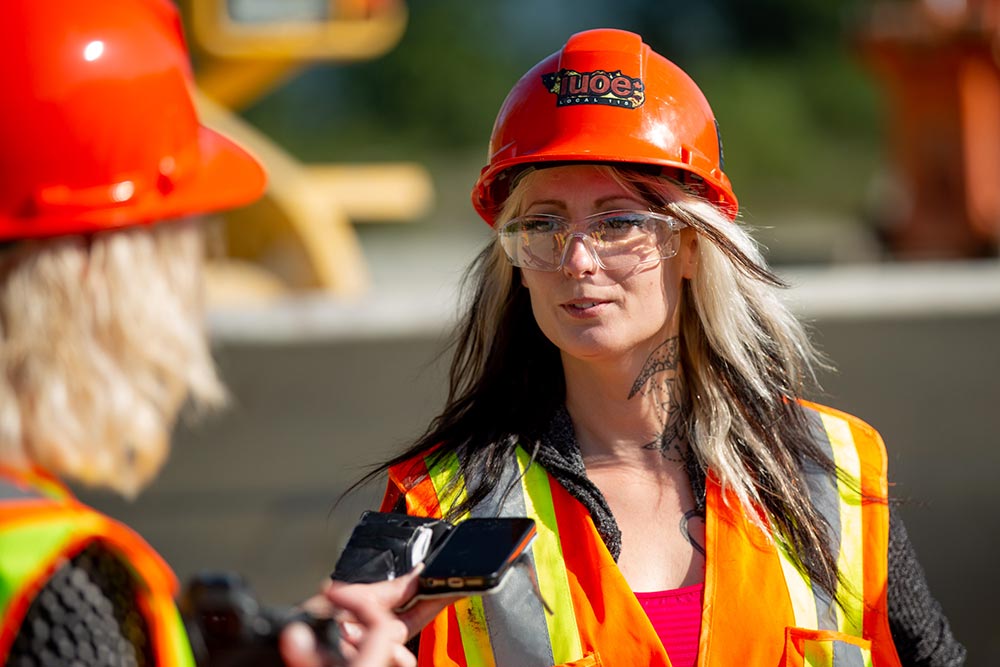The first-ever all-female cohort has completed the Heavy Equipment Operator training program, a partnership between the YWCA, and the International Union of Operating Engineers, Local 115.
“With the booming construction industry in B.C. we’re looking for opportunities for people who don’t traditionally work in the field,” said Jeff Gorham, training administrator for the Operating Engineers Local 115 Training Association.
Gorham said the project ties in well with the government’s mandate both with LNG Canada and the provincial NDP government’s Community Benefits Agreement, which prioritizes jobs for equity-seeking groups, including women in the trades, apprentices, and Indigenous workers.
There used to be very few women, if any, in the heavy equipment classes, said Gorham. But now, it’s rare to have a class without a female student.
“We provided as many supports as we could to ensure success,” he said. Even before the women started the course, they spent three weeks learning essential skills, and the training was followed up by job preparation courses before the apprentices were placed in their practicums.
Karla Cisneros, one of the six apprentices, described the experience as a “never-ending learning adventure.”
She spoke highly of the instructors and the course overall.
“The instructors were always there 100 percent,” she said. “When you get older, you think you know how to do everything already. But this isn’t true. They had to work with us and show us how things were done. They were very patient.”
“For me, the challenge was the second language. Whatever I didn’t understand in the course, I would go home and study, and if I read something I didn’t understand, I would Google it.”
This was made easier with the help of a computer provided by WorkSafeBC, she said. “Even though they say there’s never a dumb question, I didn’t want to be asking something like ‘what is a sprocket?!’”
She added that “the union helped out with everything.”
IUOE Local 115 business manager Brian Cochrane said IUOE Local 115 is proud to train women for these career opportunities.
“All six women who completed the training now have work placements, with three in the local area and another three with LNG in the North,” he said. “It’s a real success story having a program like that and putting our people out to work.”

